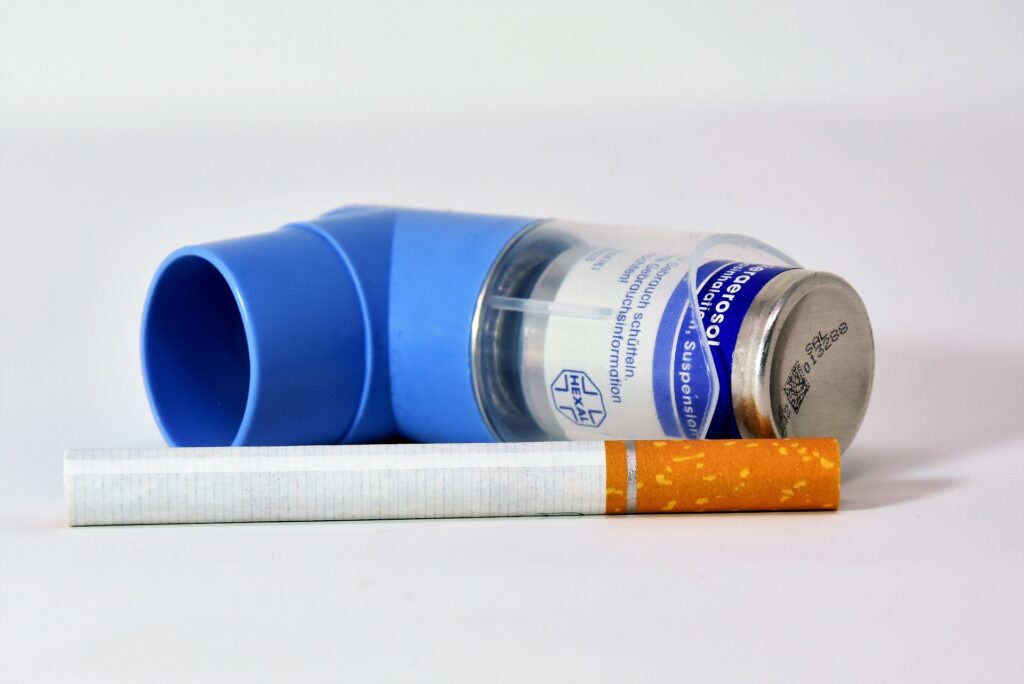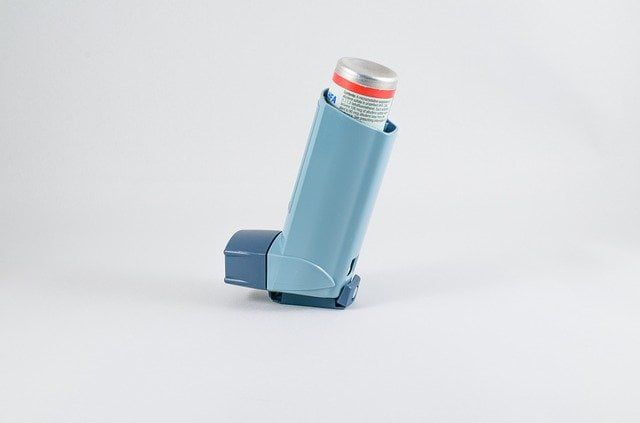What is Asthma?
Asthma is one of the common health issues, it is a chronic respiratory disorder that makes breathing difficult. It is a disease that is caused by airways in the lungs and includes recurring symptoms such as wheezing, shortness of breath, chest tightness, and coughing.
It’s also known as bronchial asthma. People experience inflamed and swollen airways, which causes them to react in an exaggerated way to things that irritate their airways.
Asthma is a disease of the lungs. It is a chronic disorder which causes inflamed and swollen airways, and makes it hard to breathe. It affects 5% of the total world population, with prevalence varying based on geography, environment and ethnicity. In the United States alone, it affects an estimated 25.3 million Americans or 8.4% of the population. It has affected 3.3 million children alone in the United States. It is known to be one of the leading causes of school absences, hospitalizations and even death.
We all know that exercise is important in maintaining physical fitness, but did you know that it can also help immensely to people who are dealing with it? It can be managed, but it takes hard work and stronger willpower. You have to take careful precautions and follow your doctor’s instructions.
Symptoms of Asthma
The annual medical cost of asthma in the US is estimated between $56 billion to $71 billion per year, with over 1.5 million hospitalizations annually at a cost of more than $9 billion. The annual cost of asthma in the UK is estimated at £1.7 billion, with over 300,000 hospital admissions per year at a cost of more than £0.5 billion. The annual cost of asthma in Australia is estimated at $1.5 billion, with over 300,000 hospital admissions per year at a cost of more than $0.6 billion.
Most people know that asthma symptoms include wheezing, coughing, chest tightness, and shortness of breath. However, some are unaware that many other symptoms do not get as much attention. These lesser-known symptoms often go undiagnosed and untreated. They can cause a great deal of distress and make it difficult to manage it.
Some of the lesser-known symptoms include:
- Postnasal drip – It can cause the mucus to drain from your nose and throat. This may irritate your airways and make you feel like you’re choking. You may also experience a burning sensation in your chest and throat that feels like asthma symptoms.
- Mouth breathing – If you’re mouth breathing, you’re not getting enough air through your nose. Mouth breathing can cause a dry mouth and throat, which can lead to postnasal drip.
- Gastroesophageal reflux disease (GERD) – This is when stomach acid flows back up into your esophagus. It can cause a burning sensation in your chest and throat, which may feel like asthma symptoms. Heartburn can also cause a bitter or sour taste in your mouth.
- Food allergies – Many people with food allergies also have asthma. Common food allergens include milk, eggs, peanuts, tree nuts, soy, wheat, and fish, etc.
- Infections – Upper respiratory infections, such as the common cold, can trigger asthma symptoms. This is because your body’s immune system reacts to the infection by releasing chemicals that can cause inflammation in your airways.
- Exercise – Some people with asthma have exercise-induced asthma. This is triggered by strenuous physical activity, which causes the muscles in your airways to tighten and narrow.
- Stress – Stress can cause your airways to tighten and narrow, which can trigger asthma symptoms. This is why stress management is an important part of managing asthma.
- Weather – Weather changes can trigger asthma symptoms. This is because cold air and high humidity can cause your airways to narrow, while hot, dry air can irritate them.
- Medications – Some medications can trigger asthma symptoms, including aspirin and other nonsteroidal anti-inflammatory drugs (NSAIDs), decongestants, and some antibiotics. If you take any of these medications, it is advisable to consult with your doctor.
Different Types
There are different types of asthma, and they’re classified by their cause, clinical presentation, and severity. The three types are:
- Allergic asthma— It is caused by an allergic reaction to a substance that you inhale. This type of asthma is also called extrinsic asthma. The most common triggers are pollen, dust mites, and pet dander.
- Chemical asthma– It is caused by inhaling certain chemicals. The most common chemical triggers are tobacco smoke and air pollution.
- Non-allergic asthma– It is not caused by an allergic reaction. This can be triggered by exercise, stress, cold air, or other factors.
It can be treated with prescription medications and by avoiding triggers. People should also avoid tobacco smoke and air pollution.
Causes of Asthma
The causes of Asthma vary from person to person. Following are the general causes of Asthma:
- Smoking is one of the most common causes of asthma. If you smoke, your risk of developing asthma is greater than that for non-smokers. Smokers are more likely to have more severe cases of emphysema, with a greater degree of destruction of the air sacs in their lungs.
- Pollution– The most significant pollution-induced asthma triggers include chemical vapors, such as those from paints, lacquers, and cleaning fluids, wood smoke, including that from fireplaces and wood stoves, is another common trigger. Mold spores can also cause asthma attacks in people who are sensitive to them.
- Exercise- Exercise-induced asthma is triggered by strenuous exercise. It is characterized by the onset of shortness of breath, wheezing, and coughing during or after exercise. The symptoms may be severe enough to force you to stop exercising. You may read Is whey protein safe to drink?

Treatment and Prevention of Asthma
There are several treatments available for asthma, but not all work equally well for everyone. Asthma treatment is largely based on the frequency and severity of symptoms. Most people, they’ve found one or two medications that work well for them, depending on the severity of the symptoms.
There are a few general guidelines when you are choosing how to treat it.
- Talk to your doctor about what you can do to treat it and make sure you’re doing everything you can to keep it under control.
- Make sure you’re taking the medication as prescribed.
- Make sure you’re not taking any medications that could interfere with the effectiveness of your asthma medication.
- Make sure you’re not smoking.
- Make sure you’re not exposed to any irritants that could trigger an attack.
- You should make sure you’re not exposed to any allergens that could trigger an attack.
- Make sure you’re not exposed to any toxic chemicals that could trigger an attack. You can’t always know what the triggers are that cause your asthma to flare up. But you can take steps to reduce your risk of exposure to dangerous chemicals and irritants that could trigger an attack.
- Make sure you’re not exposed to any air pollution that could trigger an attack.
- Ensure you’re not exposed to any mold or mildew that could trigger an attack.
- Make sure you’re not exposed to any dust mites that could trigger an attack.
- Make sure you’re not exposed to any cockroaches that could trigger an attack.
- Make sure you’re not exposed to any cigarette smoke that could trigger an attack.
- Make sure you’re not exposed to any pet dander that could trigger an attack.
In addition, several over-the-counter medications can help relieve symptoms. The following medications are available with a prescription from the doctor:
- Fluticasone (Flovent HFA)
- Budesonide (Pulmicort Flexhaler)
- Mometasone (Asmanex Twisthaler)
- Beclomethasone (Qvar RediHaler)
- Ciclesonide (Alvesco)
For quick relief your doctor may prescribe:
- Albuterol (ProAir HFA, Ventolin HFA, others)
- Levalbuterol (Xopenex HFA)


